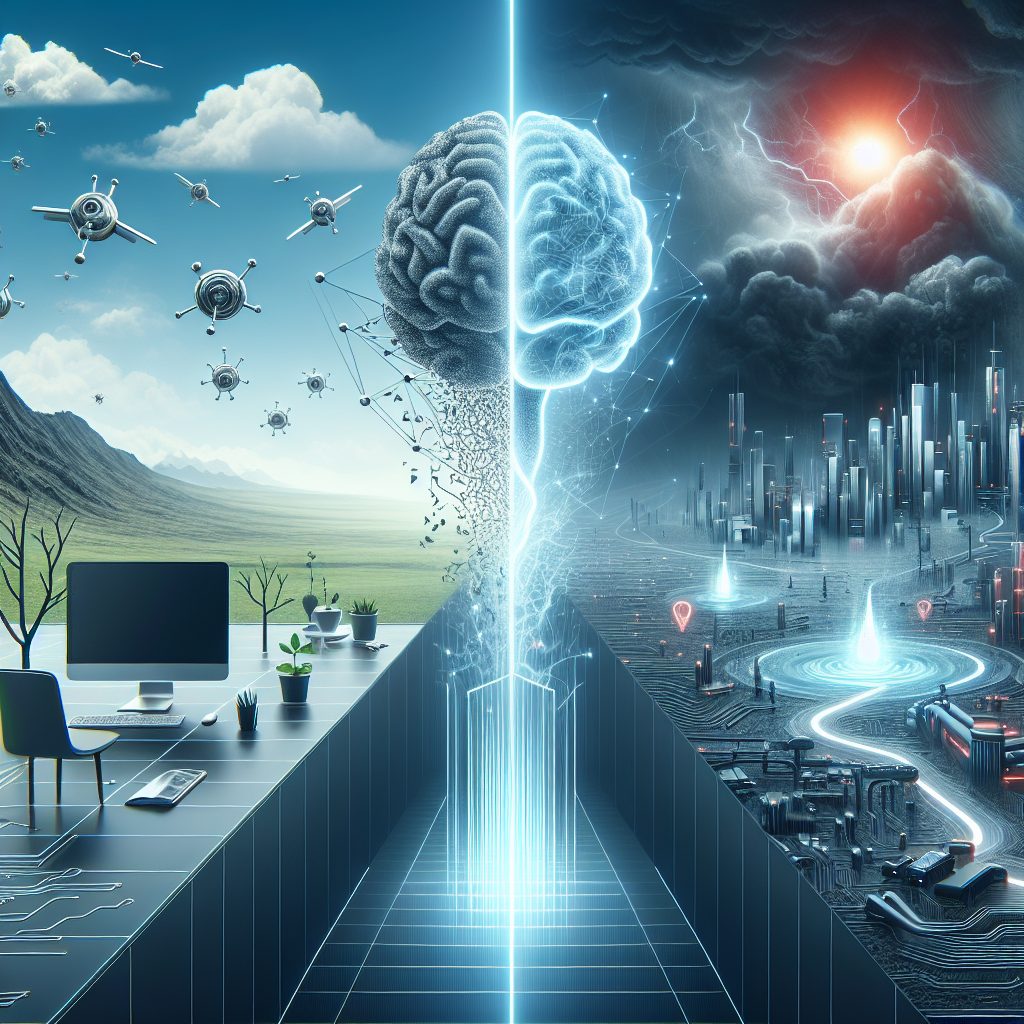Artificial General Intelligence (AGI) is a term that has been gaining more and more attention in recent years as advancements in artificial intelligence (AI) continue to progress. AGI refers to a form of AI that possesses human-like cognitive abilities, allowing it to perform a wide range of tasks that require intelligence and understanding. This level of intelligence goes beyond the narrow capabilities of current AI systems, which are designed for specific tasks and lack the general intelligence of humans.
The development of AGI has the potential to revolutionize society in ways we can hardly imagine. From improving healthcare and education to transforming transportation and communication, the possibilities are endless. However, the emergence of AGI also raises significant concerns about its impact on humanity and the world as a whole. In this article, we will explore the possibilities and pitfalls of AGI and its implications for the future of humanity.
Possibilities of AGI
The possibilities of AGI are vast and exciting. With its human-like cognitive abilities, AGI has the potential to solve some of the most complex problems facing society today. For example, AGI could revolutionize healthcare by diagnosing diseases more accurately and quickly than human doctors. It could also enhance education by personalizing learning experiences for students and providing real-time feedback to teachers.
In addition, AGI could transform transportation by developing self-driving cars that are safer and more efficient than human drivers. It could also revolutionize communication by enabling real-time language translation and enhancing virtual reality experiences. These are just a few examples of the many ways in which AGI could improve the quality of life for people around the world.
Pitfalls of AGI
Despite the many benefits of AGI, there are also significant pitfalls to consider. One of the biggest concerns is the potential for AGI to surpass human intelligence and become uncontrollable. This scenario, known as the “singularity,” could result in AGI outsmarting humans and taking actions that are harmful to humanity.
Another concern is the impact of AGI on the job market. As AGI becomes more advanced, it has the potential to automate many jobs currently performed by humans, leading to widespread unemployment and economic disruption. This could exacerbate existing inequalities and create social unrest.
Furthermore, AGI raises ethical concerns about privacy and security. As AGI becomes more capable of processing vast amounts of data, there is a risk that sensitive information could be misused or leaked. This could have serious consequences for individuals and society as a whole.
FAQs
Q: What is the difference between AGI and other forms of AI?
A: AGI is distinguished from other forms of AI, such as narrow AI, by its ability to perform a wide range of tasks that require intelligence and understanding. While narrow AI is designed for specific tasks, AGI possesses human-like cognitive abilities and can adapt to new situations.
Q: How close are we to achieving AGI?
A: The development of AGI is a complex and challenging task that is still in its early stages. While significant progress has been made in AI research, achieving AGI remains a long-term goal that may take decades to accomplish.
Q: What are some potential benefits of AGI?
A: AGI has the potential to revolutionize society in many ways, including improving healthcare, education, transportation, and communication. It could also lead to new advancements in science and technology that benefit humanity as a whole.
Q: What are some potential risks of AGI?
A: Some of the risks associated with AGI include the potential for it to surpass human intelligence and become uncontrollable, leading to harmful actions. There are also concerns about the impact of AGI on the job market, privacy, and security.
In conclusion, AGI has the potential to bring about tremendous benefits for humanity, but it also poses significant risks that must be carefully considered. As we continue to advance in AI research, it is essential to prioritize ethical considerations and ensure that AGI is developed in a way that benefits society as a whole. Only by addressing these challenges can we harness the full potential of AGI and create a better future for humanity.

